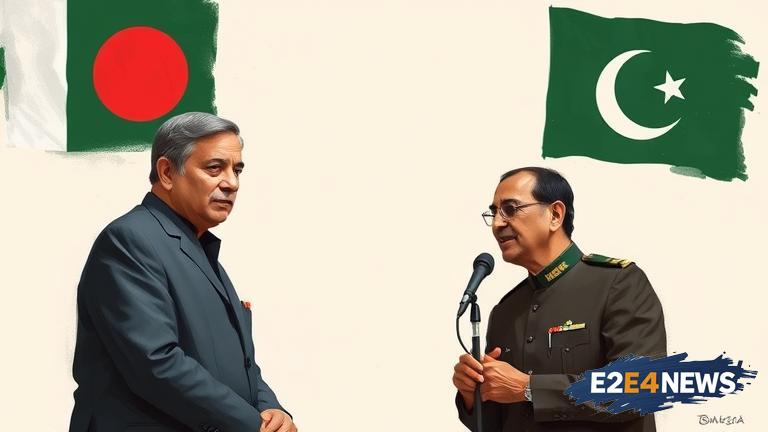The 1971 war between Bangladesh and Pakistan has left deep scars, and Bangladesh is now seeking closure on the pending issues. During a recent visit by Pakistani Finance Minister Ishaq Dar, Bangladesh raised several concerns related to the war. The country is demanding an apology from Pakistan for its role in the conflict, which resulted in the deaths of millions of people. Bangladesh is also seeking reparations for the damage caused during the war. The 1971 war was a pivotal moment in the history of Bangladesh, and the country is still grappling with the aftermath. The war was sparked by a crackdown by Pakistani forces on Bengali civilians, which led to a full-blown conflict. India intervened on behalf of Bangladesh, and the war eventually led to the independence of Bangladesh. However, the legacy of the war continues to haunt the region. Bangladesh is seeking justice for the victims of the war, including those who were killed, raped, or displaced. The country is also seeking compensation for the damage caused to its infrastructure and economy. Pakistan has so far refused to apologize for its role in the war, citing a 1974 agreement between the two countries. However, Bangladesh argues that the agreement does not preclude Pakistan from apologizing for its actions. The issue has become a major point of contention between the two countries, with Bangladesh insisting that Pakistan must take responsibility for its actions. The visit by Ishaq Dar was seen as an opportunity for Pakistan to make amends, but so far, there has been no indication that the country is willing to apologize. Bangladesh is not alone in its demand for justice, with many international organizations and human rights groups also calling for accountability. The United Nations has recognized the 1971 war as a genocide, and there are ongoing efforts to bring those responsible to justice. Despite the challenges, Bangladesh remains committed to seeking closure on the pending issues related to the 1971 war. The country is working with international partners to build a case against Pakistan and to seek reparations. The issue is not just about the past, but also about the future, as Bangladesh seeks to build a more stable and secure region. The 1971 war has left a lasting impact on the region, and it is essential that the pending issues are addressed to prevent similar conflicts from arising in the future. Bangladesh is hopeful that Pakistan will eventually apologize and make amends, but until then, the country will continue to push for justice. The international community has a role to play in supporting Bangladesh’s efforts to seek closure on the pending issues. By recognizing the 1971 war as a genocide and supporting efforts to bring those responsible to justice, the international community can help to promote accountability and prevent similar atrocities from occurring in the future. The issue is complex and multifaceted, and it will require a sustained effort from all parties involved to achieve closure. However, with persistence and determination, it is possible to achieve justice and promote healing and reconciliation in the region.
